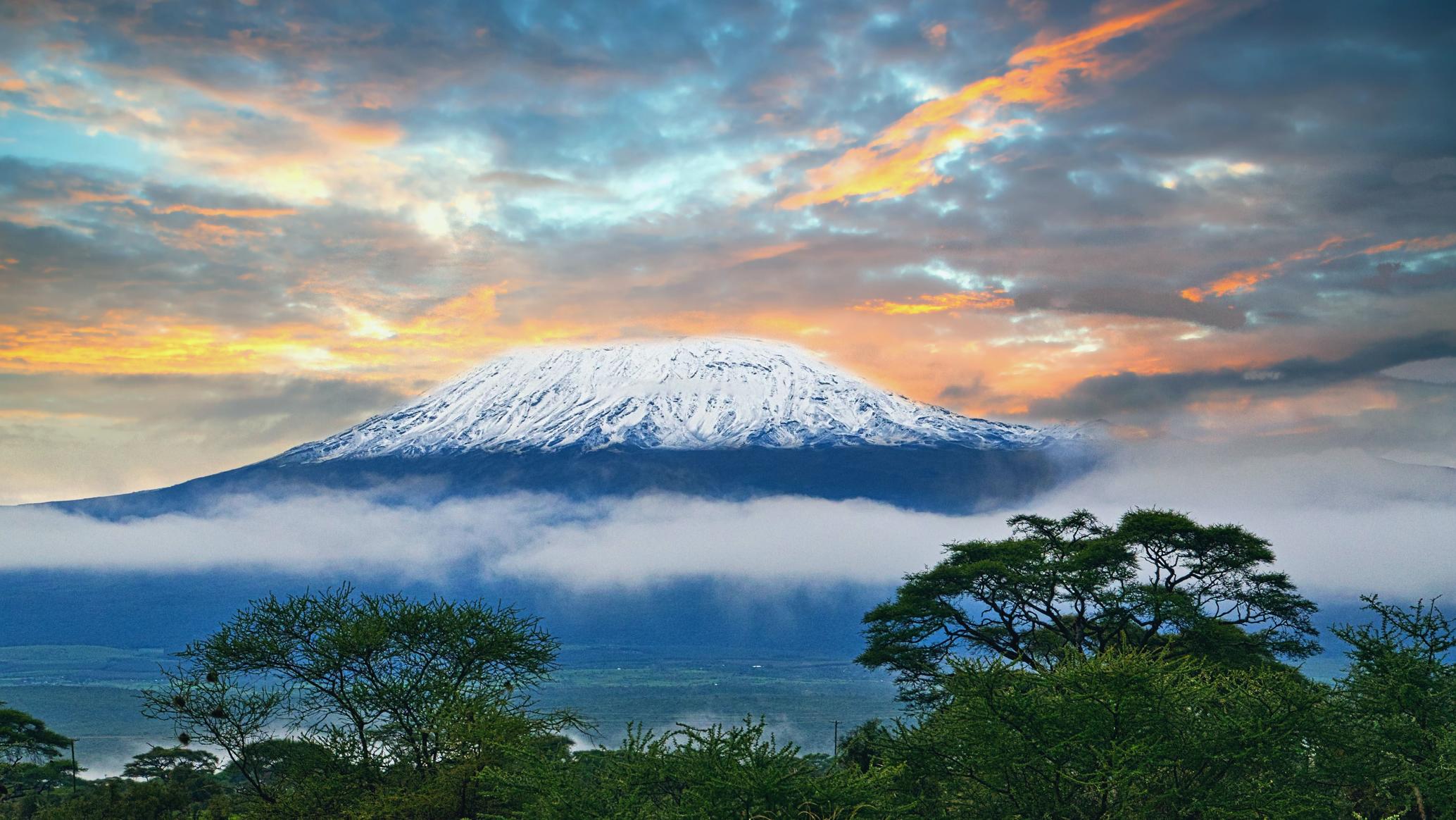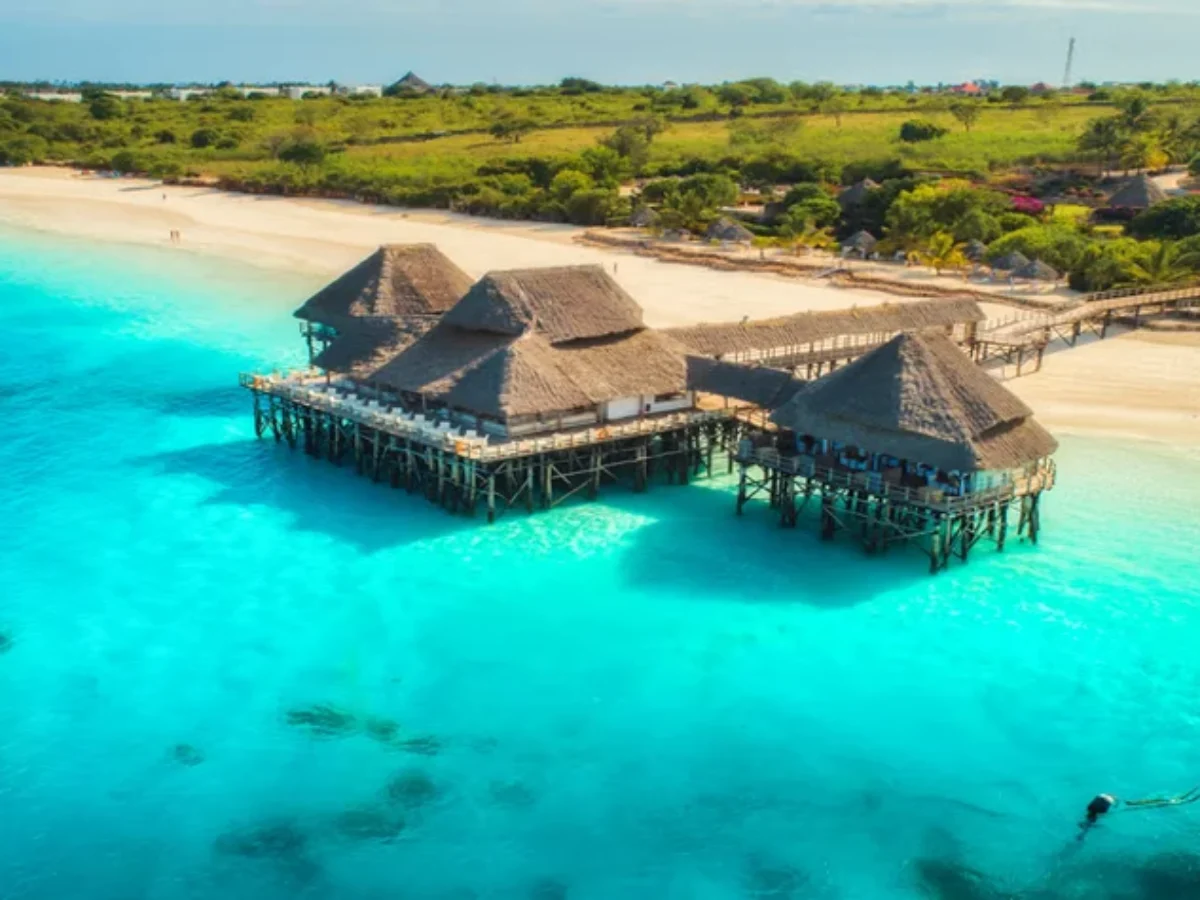



Moshi is a town in northern Tanzania, near the Kenyan border. It's known as a gateway to Kilimanjaro National Park, home to Africa's highest mountain, Mount Kilimanjaro. Trails run up the mountain’s cloud-ringed, snow-capped dome, through alpine forests and meadows home to elephants and leopards. One of Tanzania's major coffee-producing hubs, Moshi is known for its coffee farms and auctions. ― Google
Best months:
January–March: Clear views of Kilimanjaro, warm weather, fewer crowds.
June–October: Dry and cooler — best time for safaris and trekking.
Avoid:
April–May (long rains): Trails may be muddy, and cloud cover can hide the mountain.
November (short rains): Light showers, still doable.
By air:
Fly into Kilimanjaro International Airport (JRO) — about 45 minutes from Moshi.
Airport transfers are available via hotel, taxi, or tour operators.
By road:
From Arusha – ~1.5 to 2 hours by bus, shuttle, or private car.
From Dar es Salaam – Long but scenic (8–10 hours by bus or 1-hour flight to JRO).
Mount Kilimanjaro
Main access point for climbs via Marangu and Machame routes
Even if not trekking, enjoy views or take a short hike to Mandara Hut for a taste of the mountain
Materuni Waterfalls
Gorgeous falls outside Moshi; hike through coffee fields and Chagga villages
Kikuletwa Hot Springs (Chemka)
Crystal-clear natural spring perfect for swimming; day trip from Moshi
Moshi town markets
Visit Memorial Market or Mbuyuni for fresh produce, clothes, and local crafts
Kilimanjaro Coffee Tours
Visit smallholder farms, roast your own beans, and enjoy local hospitality
Moshi Clock Tower
Central town landmark, great for photos and local orientation
Climb Mount Kilimanjaro – 5 to 9-day treks available with certified guides
Waterfall hikes and village tours – Especially in Materuni and Marangu
Visit coffee plantations – Learn the process from plant to cup
Hot springs picnic – Great way to unwind after hiking
Bike tours – Explore rural areas, banana plantations, and crater lakes
Volunteer or learn Swahili – Short-term opportunities at local NGOs or language schools
Budget: Hostels, backpacker lodges, and guesthouses in the town center
Mid-range: Boutique hotels and eco-lodges with garden views
Luxury: Safari lodges or upscale retreats with mountain views
Trekking lodges: Often used pre-/post-climb with gear storage and recovery meals
Local dishes:
Ugali with meat or beans, nyama choma, ndizi na nyama (banana and meat stew)
Popular spots:
Indoitaliano – Beloved for Indian-Italian fusion and Kilimanjaro views
Mimosa, Union Café, and Kilimanjaro Coffee Lounge – Great coffee, breakfast, and expat-friendly vibes
Street food:
Chapati, maandazi (fried dough), mishkaki (meat skewers), grilled corn
Drinks: Try local beers (Serengeti, Kilimanjaro) or banana wine
Home of the Chagga people – Known for their rich traditions, hospitality, and coffee farming
The town is relaxed, walkable, and friendly.
Swahili is widely spoken, but many locals in tourism speak English.
Moshi is more conservative — dress modestly, especially in rural areas and villages.
Don’t be surprised if you’re greeted with “Karibu!” (Welcome!) or “Pole pole” (slowly, gently).
If climbing Kilimanjaro, arrive 1–2 days early to acclimatize.
Bring layers – Even in town, mornings and evenings can be cool.
Use mosquito repellent – Especially during the rainy season.
Carry cash – Many places don’t accept cards; ATMs are available in town.
Negotiate prices at local markets and for taxis.
Consider travel insurance – Especially if you’re trekking.